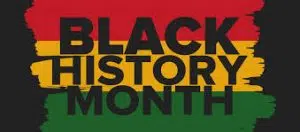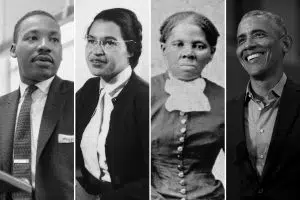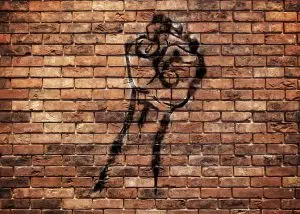February is Black History Month. It’s the annual celebration of African Americans and a time for recognizing their domain role in American and Canadian history.
It gives all of us the opportunity to share, celebrate and understand the impact of black heritage and culture. The event recognizes the achievements of people with African or Caribbean heritage.
Laurel Shire is a History Professor at Western University. She is a historian that focuses on the United States in the nineteenth century, especially the relationship between race and U.S. expansion.
She says “Growing up, during Black History Month, I learned about Harriet Tubman and Martin Luther King Jr. I had some excellent black teachers and I was a barely integrated majority white schools. It was the only time we talked about black history and that seemed to be all there was to say. I hope that eventually we don’t have to have Black History Month anymore, because we will talk about black history all the time when we talk about American or Canadian history.”
In 1926, African American historian Carter G. Woodson announced of the idea to declare Negro History Week. This was proclaimed to collaborate with Frederick Douglass and President Abraham Lincoln. Shire says “We understand our own identities in the present based on our understanding of what we came from and who we came from. Knowing that your ancestors fought for their freedom, equality, and for dignity and respect. Understanding what they accomplished gives you the courage to do it in the presence and the courage to understand yourself as somebody who inherited a proud and strong culture.”
Gal Harper is a local activist for Black Lives Matter London. He says “There’s a lot of things that are just missing from history. People need to understand where we came from, so that they can understand the roots of oppression and how it manifests in society today. It’s not over, there’s still a lot of rights that we don’t have. Whether it’s the way the laws are written in may not be necessarily exemplified in that, but how they’re carried out and the systems that uphold them. That’s where racism persists and that’s what we’re trying to finally flesh out.”
Every February, people in Canada can participate in Black History Month events that honor the legacy of Black Canadians. Carl Cadogen is the chair for the London Black History Coordinating Committee. He says “It started in the 1920s in America, then changing to a month in the 80s. In Canada, it started through the parliament. Jean Augustine got everyone to support the motion that she made to officially recognize Black History Month. Ever since that time, we celebrate it because it’s important to the black community. It’s important to recognize the history and the contribution of our community to this country.
Every black leader has had an inspiring story and legacy, but for Gal Harper, there’s not a certain individual that stands out to him during Black History Month. He says “It wasn’t just Rosa Parks and Martin Luther King, there was 1000s of black people involved in those marches. In every social justice movement, it’s not just the building leaders, it’s the group of people behind them. If it was just the leader on their own, nothing would get done. Even as Black Lives Matter London, if we don’t have people signing the petitions, our voices can only carry so far. We need people to kind of rally behind us and help us fight for the justice that we all deserve.”
The death of George Floyd last summer sparked protests across the world. On May 25th, 2020, a video was posted of a white police officer, kneeling on Floyd’s neck for nearly nine minutes as he stated that he couldn’t breathe.
Deirdre McCorkindale is a Chatham historian and a lecturer at Huron University College. She says “There are 1000s of George Floyd’s. His cases is very important because it is symptomatic of a larger issue that people have to face, but he’s one of many. I think that that’s kind of the power of that particular situation. The issue is that it isn’t one particular case.”
The death of George Floyd not only reflects the injustices faced by people of color, but it also reflects the prevalence of society’s “White Privileges”. Jennifer Tunniclife is a history professor at Ryerson University. She teaches students about the history of social justice movements and human rights. She says “I see it as a very contemporary issue in the sense that people are beginning to talk about white privilege today. The idea of white privilege is something that has existed throughout history. There are a lot of really excellent community members and activists who are trying to show that this isn’t something that is just a 2020/2021 issue. This has been this sort of experience of indigenous people and people of color of immigrants to Canada for a long time that they’ve had to fight against this system. It’s just now that we’re beginning to recognize it.”
The tragedy sparked public interest in the growth of the Black Lives Matter movement. However, over the past few months, these protests have tapered off. This had made people wonder whether the BLM movement has died down or not.
Tunniclife says “There’s a difference in the way in which people are talking about things now. We haven’t sort of reached the point at which maybe people are willing to make those kinds of changes. It takes these really tragic, violent examples that get into people’s faces for people to sort of recognize what’s going on. I don’t think we’re quite there yet when it comes to sort of recognizing the true systemic nature of sponsored and police violence, in all the other ways in which sort of systemic racism exists within our society.”
We are living in unusual times that are similar to the last century. Understanding the history of Black people can create sensitivity to their experiences and an understanding of how their past and present are alike. Black History Month is not just a time to celebrate Black people who have paved the way for us to thrive, it is also a time to consider how we can create more justice in our daily lives.
During Black History Month, we should take time and reflect on our own biases and stereotypes across racial differences. We can be leaders in creating an education system with inclusion and social justice as the main priorities.


















Comments